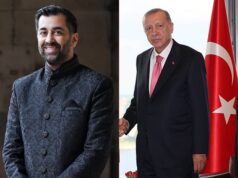A new group of MPs and Lords held its inaugural meeting this month and believes political change should begin in the classroom.
Lisandr Qose, a teenager from East London who is studying political literacy at school, believes that: “There’s a fire inside of our generation that is so willing to change everything and it’s motivating us to become more politically active than any other teenage group this past century.”
It has been shown in the youth activism within political organisations such as Black Lives Matter and Extinction Rebellion that this is certainly true. However, this is not reflected when it comes to the ballot box, as polling by Ipsos Mori suggests the 2019 General Election turnout for 18-24 year olds was a mere 47%.
The new All-Party Parliamentary Group for Political Literacy has 21 members, with both Members of Parliament and Peers among its ranks. Notable members include Andrew Bowie MP, who is a leading figure in the engagement of the Young Conservatives and is Vice-Chair of the Conservative Party. Ben Bradley MP is also a member, whose campaigns to support white working-class boys have made him an influential backbencher, alongside his Blue Collar Conservative peers.
The new group’s Co-Vice Chair, Cat Smith, said: “We’ve got a real problem in the UK about engaging young people in voting and more broadly in the democratic process.”
Knowing how the UK's political system works shouldn't be an advantage held by some students, but not others. So we're pleased to see the new #PoliticalLiteracy #APPG will provide a place for students, teachers and politicians to collaborate on this vital provision. @shoutout_UK
— Electoral Reform Society (@electoralreform) January 25, 2021
One of the aims of the new group is to “provide every child with a minimum entitlement of political literacy in school by, in the first instance, resourcing and monitoring existing requirements to teach citizenship education”. Another is to “strengthen the profile of political literacy in schools by incentivising educational authorities and system leaders to raise the status of citizenship and political education in the curriculum”.



